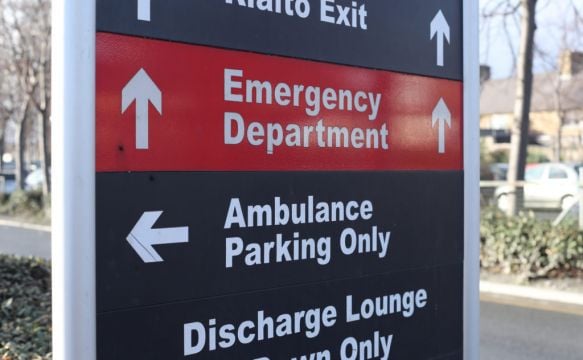The family of a 49-year-old man who it was claimed was not offered the option of a liver transplant by St James’s Hospital in Dublin has settled a High Court action over the care he received before his death.
Father of five and grandfather of four Alan Kelly, who had stopped drinking alcohol in 2008 died four years later, over ten days after he was admitted to the hospital and noted to be in renal failure.
Bruce Antoniotti SC, instructed by Kent Carty Solicitors, told the court the terms of settlement, which is without an admission of liability, are confidential. The case was before the court for the division of the statutory mental distress payment.
Christine Kelly, Slievebloom Road, Drimnagh, Dublin had sued St James’s Hospital, Dublin over the care her husband received at the hospital. Mr Kelly’s family, it was alleged, suffered severe mental distress as a result of his death.
Transplant
It was claimed there was an alleged failure to consider or offer liver transplantation to Mr Kelly, in particular when he had stopped drinking alcohol.
It was also claimed there was an alleged failure to offer a liver transplant to him when his liver disease was progressing, and more rapidly despite medical treatment.
It was further claimed there was an alleged failure to pursue the option of a liver transplant prior to December 2011 when they ought to have known the success rate was reasonable.
All the claims were denied.
In 1997, Mr Kelly had undergone a liver biopsy and a finding was made of cirrhosis as well as mild fatty changes and varices. He later had a shunt procedure which connects two veins within the liver.
Mr Kelly stopped drinking alcohol in 2008, but the next year he was developed ascites which is fluid on the abdomen. It persisted and worsened in December 2011.
On December 6th, 2011, he was admitted to St James’s Hospital where the fluid was drained, and he was discharged. He later went back to the hospital and the fluid was with drained again.
Mr Kelly was also requested to re-attend the liver clinic on January 19th, 2012.

Three days before his appointment, he went back to the hospital to have more fluid drained, but on January 19th, 2012, he presented again with shortness of breath and abdominal pain.
Following assessment, it was claimed Mr Kelly was noted to be in renal failure and his white cell count was raised. Spontaneous bacterial peritonitis was suspected, and he was commenced on antibiotic therapy, but his condition deteriorated.
It was claimed he suffered an upper gastrointestinal bleed and an emergency endoscopy was performed which showed a large amount of clots.
Mr Kelly had another procedure and tubes were inserted, but on February 1st, 2012, it was claimed he suffered a massive upper gastrointestinal bleed and died.







